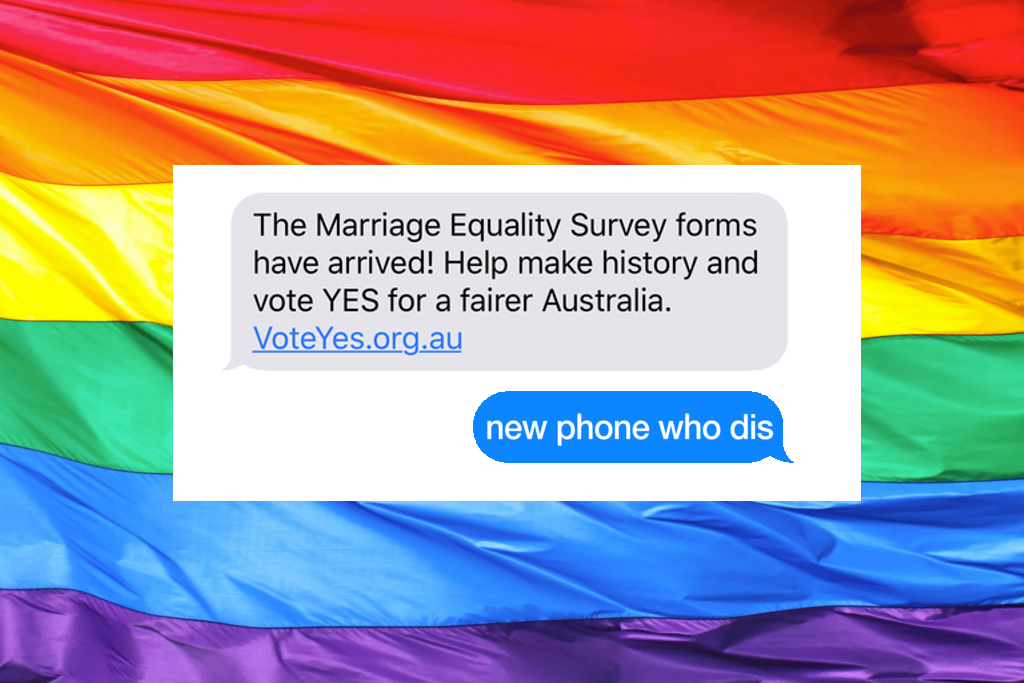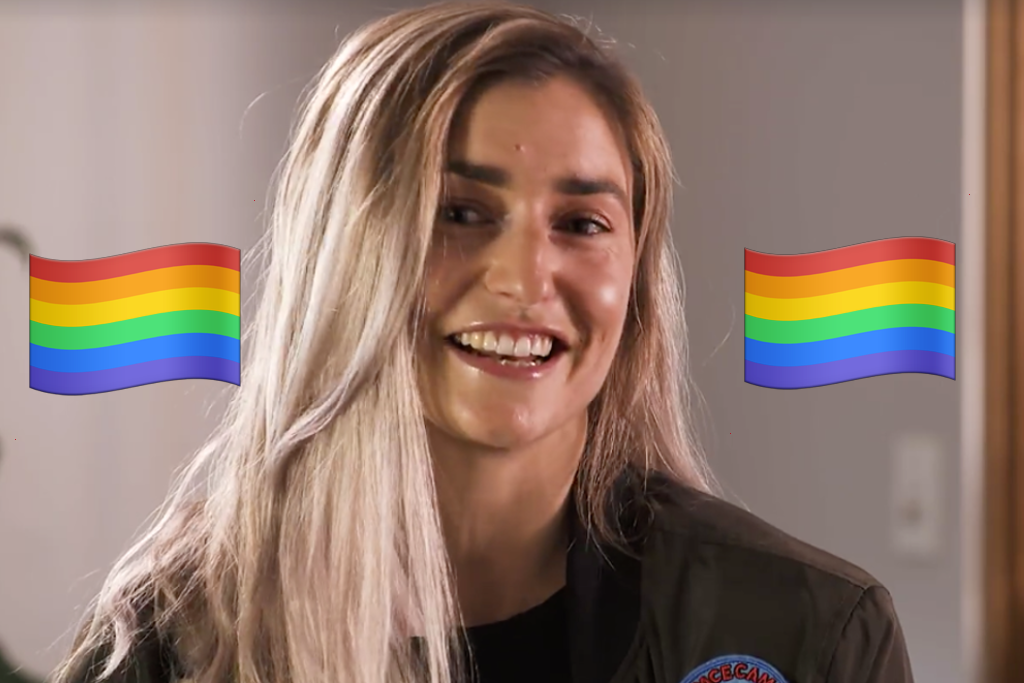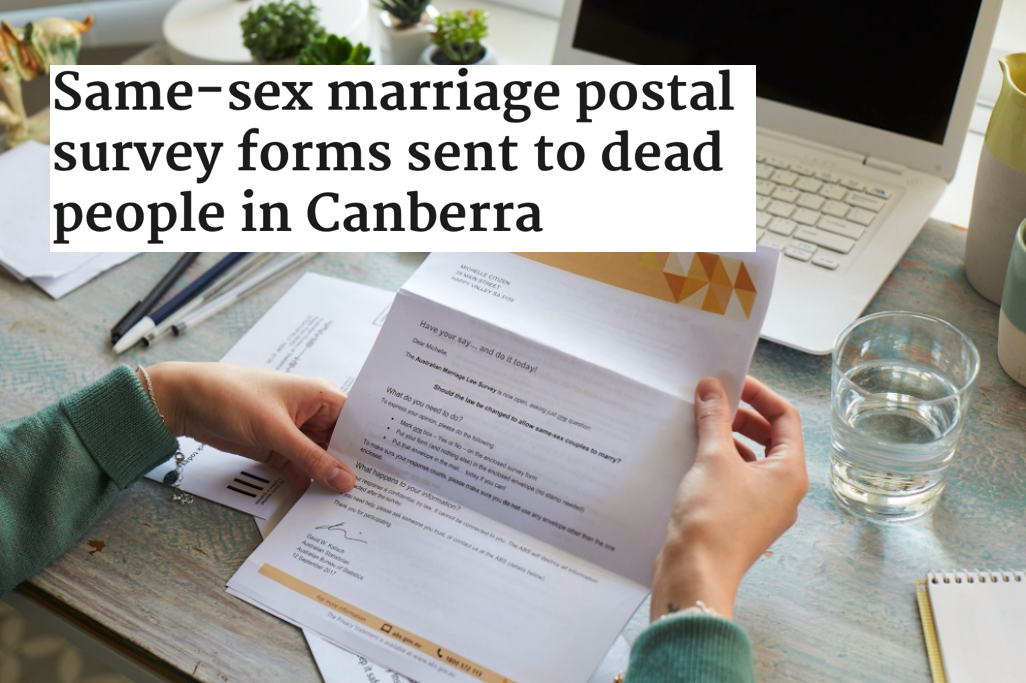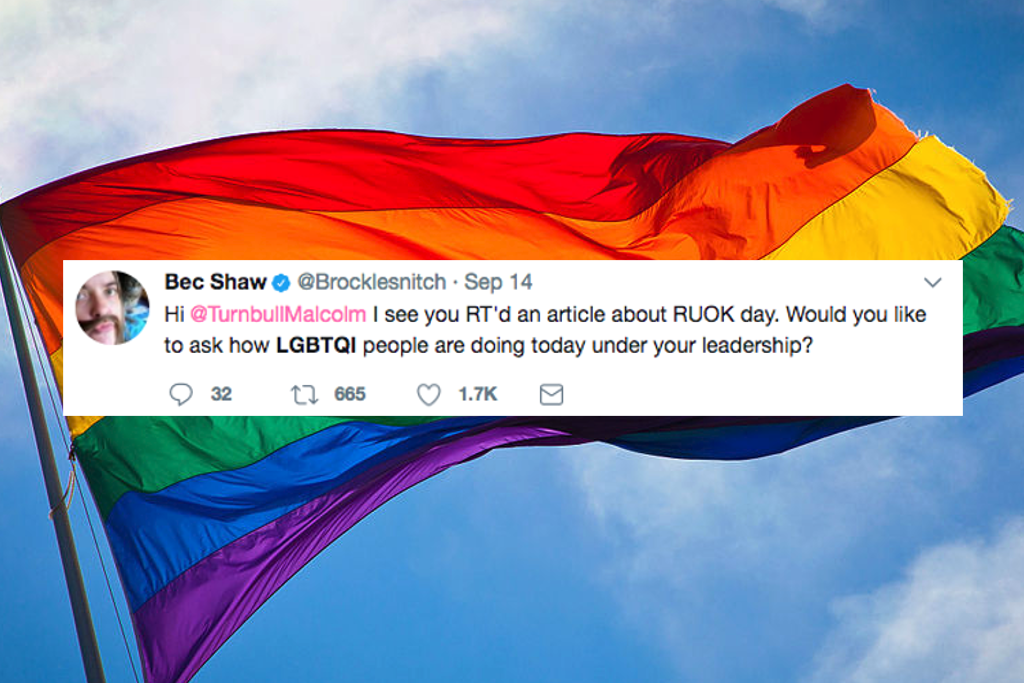Those Yes Campaign Texts People Were Complaining About Really, Really Worked
170,000 people clicked through for info, and 20,000 signed up to volunteer.

Well, it turns out those Yes campaign texts people were complaining about worked really, really well. According to the Yes campaign, 170,000 people who received the texts clicked through to receive more information, and 20,000 people expressed an interest in volunteering for the campaign as a result.
Co-chair of Australian Marriage Equality Alex Greenwich told Junkee that the Yes campaign is “really happy with the result,” as well as the positive response volunteers received while doorknocking on the weekend.
“I think overall we’ve been really heartened and encouraged by the response we’ve got across the board,” Greenwich said.
“We’ve received a really positive response from people who’ve said they have voted Yes, or are voting Yes, and overwhelmingly want to get this done.”
In response to those who expressed concerns about the text campaign being spammy or a breach of privacy, Greenwich acknowledged their frustrations but also said that the Yes campaign needs to make the best of the situation it finds itself in.
“The fact that we’re going through a postal survey on the dignity of one group of people in our community means we’re already at a point where we’re the underdog here,” he said. “I think the tragedy in all of this, which sometimes gets forgotten, is the people this reform is about — the people who just want to marry the person they love.”
“We obviously didn’t want to be in this postal survey campaign in the first place — we took it to the High Court to try to stop it,” he said. “But now we’re here, and we need to make sure we campaign to win this.”
No Campaign Is “Pretty Appalling”
Greenwich also pointed out that opponents of marriage equality have engaged in similar tactics, such as a robo-calling campaign last week that was accused of attempting to mislead respondents into voting No by suggesting a Yes result will lead to “radical gay sex education”.
“The direction they go in is pretty appalling,” Greenwich said, noting that in comparison, the Yes campaign SMS “was very much about providing information that a postal survey is on, that people should have received ballots, and how to participate. Whereas what we’ve seen from the other side is quite misleading information being distributed.”
Greenwich also cited Guardian Essential polling released today, which found that 72% of people who have voted so far were in favour of marriage equality, as another encouraging piece of feedback for the Yes campaign. While he noted the campaign still has “a lot of work to do”, knowledge that there’s plenty of support out there in addition to the negativity and violence of recent weeks is encouraging.
“It shows that so many Australians are rejecting the negativity from the No side and really want to make Australia a fairer place,” he said.
“That positivity is resonating with people. We’re going to continue our focus on the people this is about, and we made this point very clearly today with a video of Frances Abbott talking about what marriage equality means to her. We’re going to keep reminding people this is about everyday Australians who just want to marry the person they love.”


